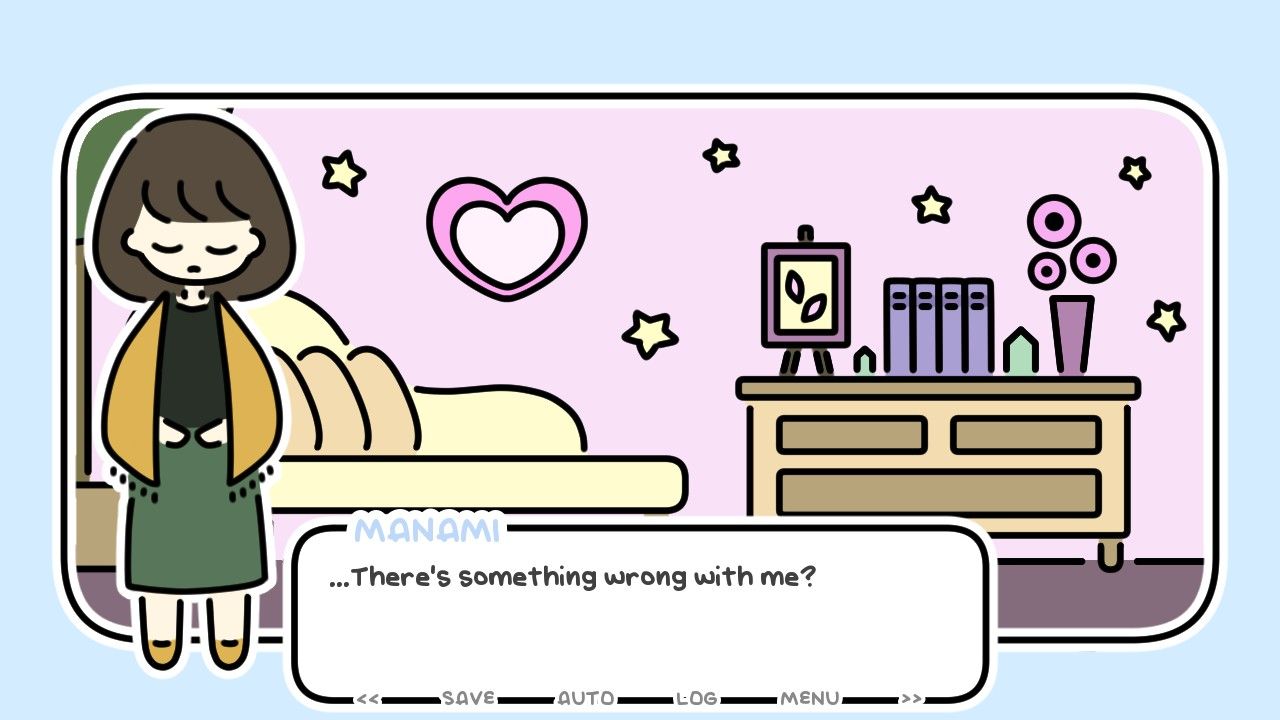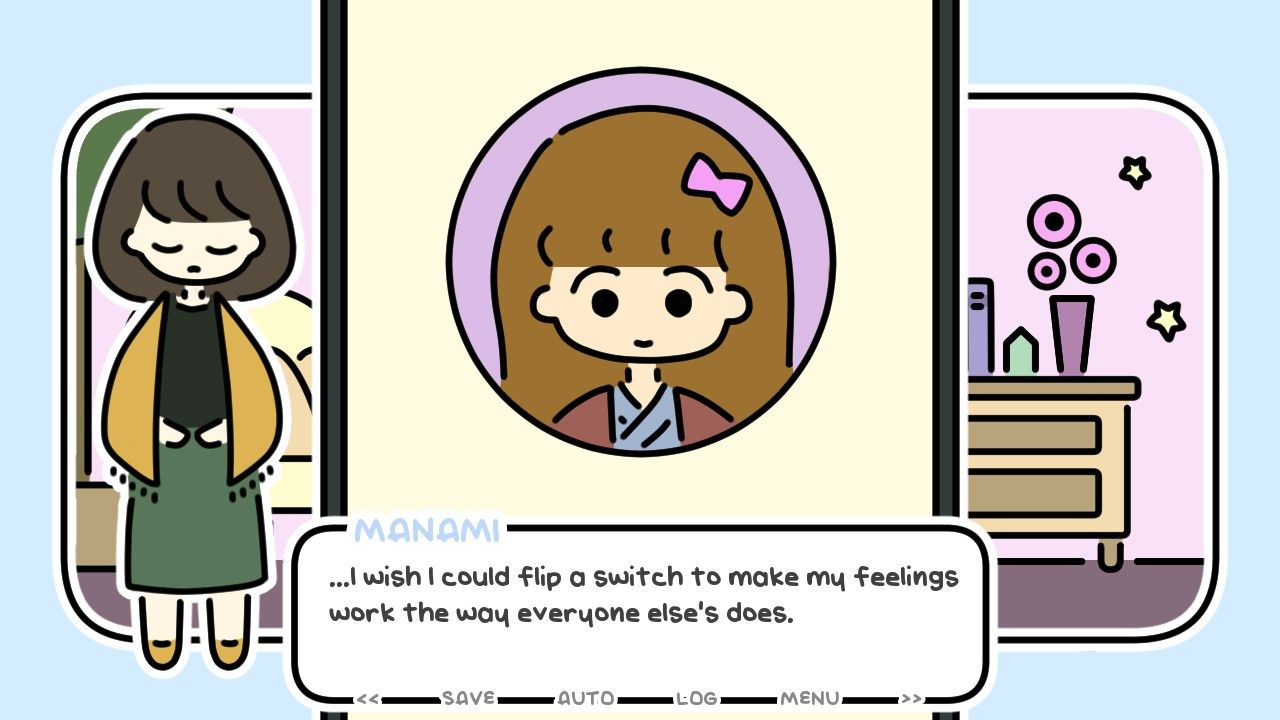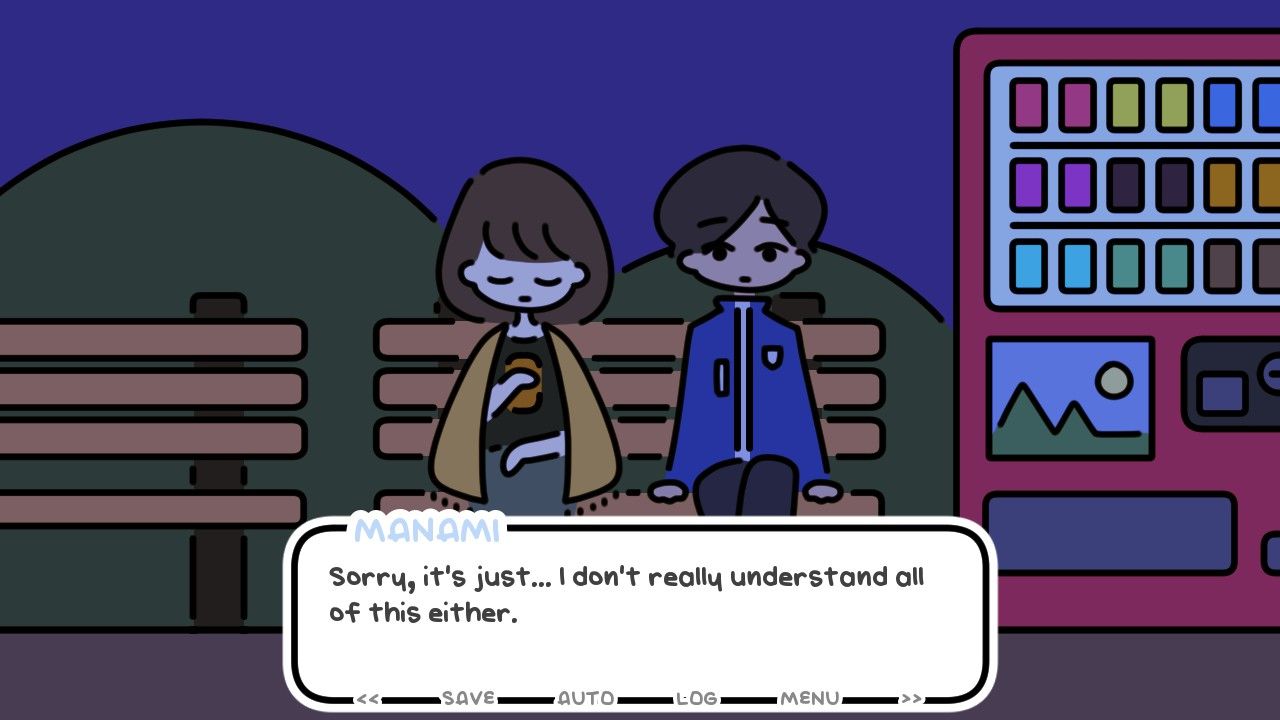But even when that happened, it didn’t really reflect much about them as characters (other than some rather unfortunate replication of stereotypes, I suppose, where the wholesome Alistair couldn’t be romanced by a male player character, but the amoral, promiscuous elf Zevran could serve as “the gay option”). And the fact of any given character being said “gay” option was something that you knew going into the game. Both in and out of character, they were completely out of the closet. There was never any real need for them to have a coming out. I bring that up not because I want to write yet another piece on lesbian and gay romance in popular BioWare games, but because I’ve been thinking a lot about coming outs and video games lately. The reason for that is Spring Leaves No Flowers, the third game in npckc’s One Night, Hot Springs series of visual novels (I’ve written on the second game in the series, Last Day Of Spring, before). Under the guise of cutesy, simplistic visuals, these games offer a series of smart and touching narratives about queer lives in contemporary Japan.
The narrative in Spring Leaves No Flowers focuses on Manami. In previous games, she was the token cishet, a kind of an envoy from the straight world. Here, she is the point of view character. At first, the story unfolds as if the main tension was in Manami learning that the two of her best friends - transgender woman Haru and bisexual Erika - are in a relationship together, and then coming to terms with it. But in reality, what Spring Leaves No Flowers is about is coming out. In talking with Haru and Erika about their mutual attraction, Manami starts to feel like there’s something off about her own life. The two women constantly make references to the desire that binds them, the “butterflies in the stomach” that make them want to be intimate. And Manami doesn’t really understand what that is supposed to mean. It disturbs her, because the way her friends describe it should be something obvious, something she should be well aware of. When she is told that it is something that should be present in every relationship it makes her examine the way she relates to her boyfriend. When asked if she is attracted to him, as in physically attracted, she finds that she isn’t. This causes her grief: she feels like there is something wrong with her, like she is failing at something she didn’t even know she was supposed to be doing. And then, Haru introduces her to the term “asexual” and her world turns upside down.
Coming out (as gay, ace, trans…) is often imagined as a one-and-done moment where a person renders their inner self public knowledge. It assumes that the person coming out knows who they “really” are, and suggests that the main threat is of rejection and hostility, but also offers the Utopian promise of being finally able to live your “real” self wherever you go. This idea is, I think, one of the more persistent misconceptions about LGBT+ lives, and one that I didn’t really question until I had to start coming out myself. Spring Leaves No Flowers gets that. At the end of the game, Manami sees her boyfriend; as they sit together on a bench in a park, she struggles to tell him that maybe, just maybe, she is asexual. That she actually wants to give identifying as such a shot. But before she could get to that point, she had to go through a personality crisis. She didn’t immediately recognise herself in the label suggested to her by her friend, and even as she - reluctantly - came to identify with it, it remained a less than perfect fit.
After all, before Haru and Erika chipperly described the erotics of their relationship to her, she didn’t even think that those erotics were something people cared about. She understood her lack of physical attraction as something perfectly normal, reading it as socialisation instilling in her the need to “save herself for marriage”. Her coming out wasn’t a moment of personal disclosure as much as one of changing her relationship to herself. It was less about inner truth, and more about trying to make sense of a bundle of feelings that are too complicated for words. It is also not a moment of final catharsis. Her pained disclosure to her boyfriend doesn’t put an end to her identity troubles, but rather moves them on to a next stage that will likely be messy and difficult. The ending doesn’t say how identifying as ace will shape Manami’s relationship (her boyfriend offers to help figure something out, but we are not promised it will work out), how it will affect the way she sees herself, how it will touch on relationships with her other friends and family. Coming outs are seldom final. Often, you have to come out again and again. You come out to a friend, but not to the family, you come out to your sister, but not your mother, you are out to some people, but not others. But while Spring Leaves No Flowers shows this, it’s one of very few games that do. I’ve been trying to think of other coming out narratives in video games, and outside a few small, hyper-queer productions such as my beloved Butterfly Soup or (in kind of an esoteric way) We Know The Devil, I’m mostly coming up blank.
In a way it’s very understandable. The push for more representation is real, and even if the results have been a mixed bag at best, there’s been an actual tendency to include more LGBT+ characters. But this inclusion usually means that the characters appearing on screen are usually clearly labelled as L or G or B or T or A or Q. Their identity is stable and assured, so that they can be pointed towards as an example of the (genuinely necessary) representation. What Spring Leaves No Flowers brings to attention, however, is that this sort of representation is heavily impoverished. The extended mess of coming out, of trying to find a name for your feelings and then to make others recognise them, is the perennial queer experience. Some have more luck with it than others, and have identities that are strong and stable and which they always knew; but not all queer lives are that. Quite often, there is little certainty, a lot of questioning and many complicated conversations like the one between Manami and her boyfriend, two people trying to make sense of the shifting grounds of their relationship. This is the kind of representation we also need. Not just more gay characters, but more characters that come out as gay. Not just more trans people (who tacitly reveal that they are trans if you pick the correct option in the conversation trees), but more characters who can be described with the immortal line from Imogen Binnie’s Nevada: “…that kid is trans and he doesn’t even know it yet.” Spring Leaves No Flowers is an example of how such representation could look. In the way it is relatable and touching, it is also a solid argument for why it is needed.



